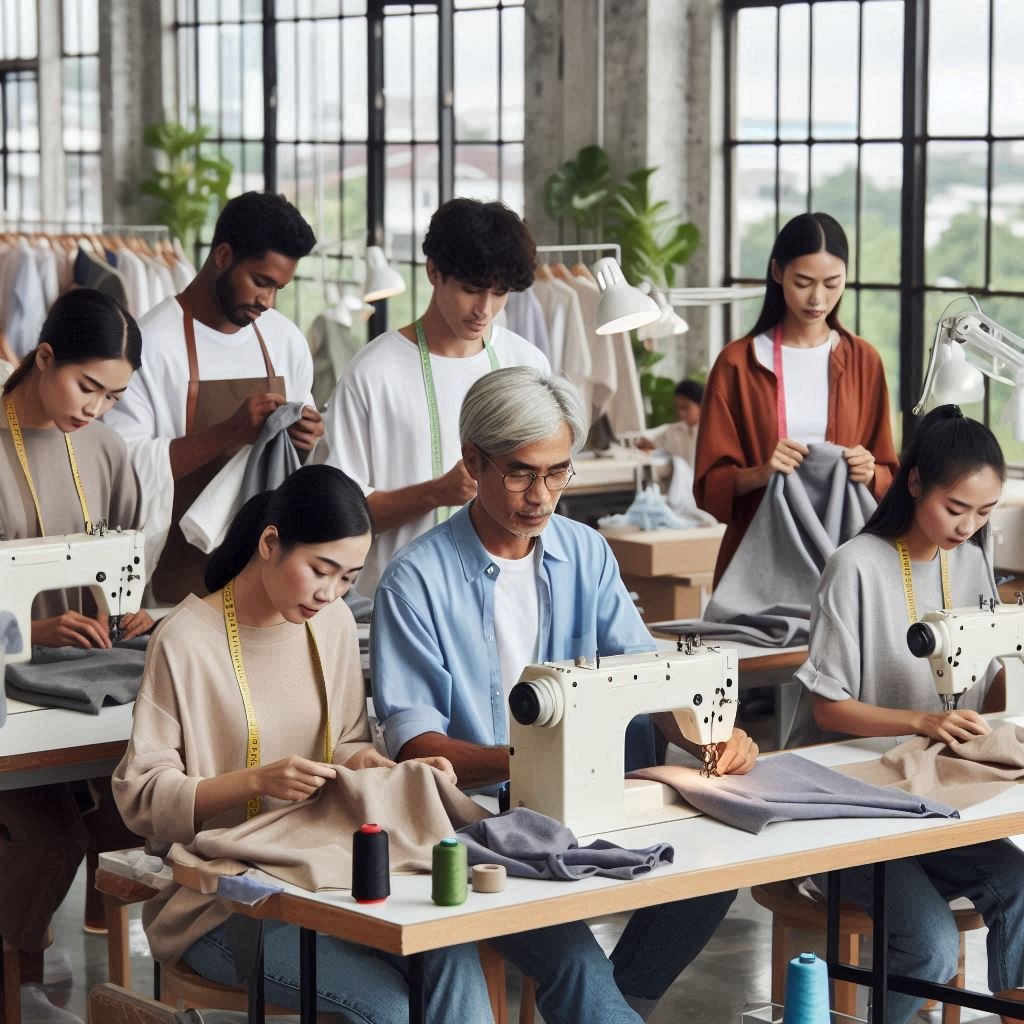
Why Ethical and Sustainable Garment Manufacturing is Key to Scaling Brand Quality

In the ever-evolving fashion industry, the importance of ethical and sustainable garment manufacturing has become increasingly significant. Consumers are more conscious of where their clothes come from and how they are made. Brands that prioritize ethical and sustainable garment manufacturing not only enhance their quality but also build trust and loyalty among their customers.
On this article The Vendoors would breakdown on why ethical and sustainable garment manufacturing is key to scaling brand quality and how it impacts consumer perception and business growth.
The Importance of Ethical and Sustainable Garment Manufacturing

Ethical and sustainable garment manufacturing involves producing clothing in a way that is mindful of environmental impact and fair labor practices. This approach addresses issues such as pollution, waste, and worker exploitation, promoting a more responsible and transparent fashion industry.
1. Environmental Responsibility: Sustainable garment manufacturing minimizes the environmental footprint of production. This includes using eco-friendly materials, reducing water and energy consumption, and minimizing waste. By adopting sustainable practices, brands can significantly lower their carbon footprint and contribute to the preservation of natural resources.
2. Fair Labor Practices: Ethical garment manufacturing ensures that workers are treated fairly and work in safe conditions. This includes fair wages, reasonable working hours, and ensuring no child labor or exploitation. Ethical practices build a positive brand reputation and ensure that workers are respected and valued.
3. Consumer Demand: Today’s consumers are increasingly aware of the social and environmental impacts of their purchases. Brands that adopt ethical and sustainable manufacturing practices are more likely to attract and retain customers who value these principles. This growing demand for transparency and responsibility is reshaping the industry.
Scaling Brand Quality Through Ethical Manufacturing

1. Enhanced Brand Reputation: Brands that commit to ethical and sustainable practices stand out in a crowded market. A strong reputation for responsibility and quality can lead to increased customer loyalty and positive word-of-mouth marketing. Consumers are more likely to support and recommend brands that align with their values.
2. Improved Product Quality: Sustainable garment manufacturing often involves using higher-quality materials and better production techniques. This not only ensures that products are durable and long-lasting but also reduces the frequency of returns and exchanges, enhancing overall customer satisfaction.
3. Regulatory Compliance: As governments worldwide implement stricter environmental and labor regulations, brands that adhere to ethical and sustainable practices are better positioned to comply with these laws. This reduces the risk of legal issues and potential fines, ensuring smoother operations.
4. Attracting Investment: Investors are increasingly looking for companies that prioritize sustainability and ethical practices. Brands with strong commitments in these areas are more attractive to investors seeking long-term, stable returns. Ethical and sustainable practices signal responsible management and future-proofing.
Strategies for Implementing Ethical and Sustainable Practices

1. Sustainable Material Sourcing: Opt for materials that are environmentally friendly, such as organic cotton, recycled polyester, and sustainable fibers like bamboo and hemp. These materials reduce the environmental impact of production and are often more durable and high-quality.
2. Energy-Efficient Production: Invest in energy-efficient technologies and renewable energy sources to power manufacturing facilities. Reducing energy consumption not only lowers costs but also minimizes the carbon footprint of production.
3. Waste Reduction: Implement practices to reduce waste at every stage of production. This includes recycling scraps, using biodegradable packaging, and adopting a circular economy approach where products are designed for reuse and recyclability.
4. Fair Labor Practices: Ensure fair wages, safe working conditions, and reasonable working hours for all employees. Obtain certifications like Fair Trade, which guarantee that ethical labor practices are being followed.
5. Transparency and Accountability: Maintain transparency in the supply chain by regularly auditing and reporting on ethical and sustainable practices. Use third-party certifications to validate claims and build trust with consumers.
The Future of Ethical and Sustainable Garment Manufacturing

As the demand for ethical and sustainable fashion grows, more brands will need to adapt to these practices to remain competitive. The future of garment manufacturing lies in innovation and responsibility. Brands that invest in sustainable technologies and ethical practices will not only scale their quality but also contribute to a healthier planet and fairer society.
Ethical and sustainable garment manufacturing is no longer a niche concern but a crucial strategy for scaling brand quality. By adopting environmentally friendly practices and ensuring fair labor, brands can enhance their reputation, attract loyal customers, and achieve long-term growth.
The path to sustainability is an investment in the future, where quality and responsibility go hand in hand. As consumers continue to prioritize sustainability, brands that lead in ethical garment manufacturing will set the standard for excellence in the fashion industry.
Embracing ethical and sustainable garment manufacturing practices is key to not only scaling brand quality but also building a resilient and respected brand in today’s conscious marketplace.




